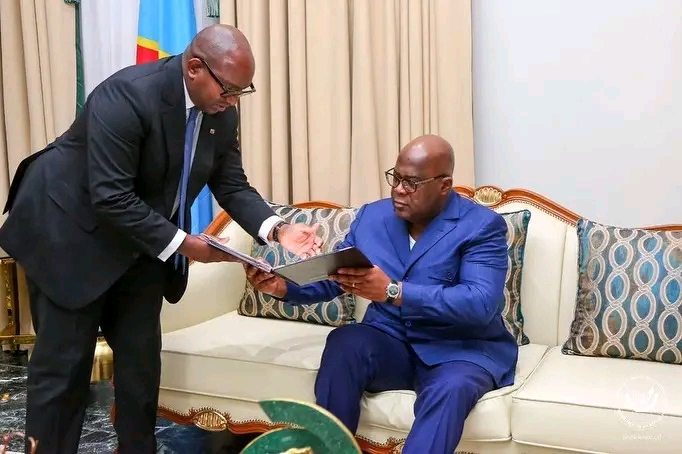By Ollus Ndomu
In a surprising turn of events, Prime Minister Jean-Michel Sama Lukonde of the Democratic Republic of Congo (DRC) has tendered his resignation, which has been accepted by President Felix Tshisekedi. The departure of Prime Minister Lukonde marks a significant development in the political landscape of the DRC and raises questions about the trajectory of President Tshisekedi’s new mandate.
Prime Minister Lukonde, who assumed office in 2021, has played a pivotal role in the governance of the DRC during a period of transition and reform.
His resignation comes amidst speculation about internal rifts within the ruling coalition and challenges facing the government, including ongoing security concerns and economic reforms.
President Tshisekedi’s acceptance of Lukonde’s resignation signals a willingness to address the evolving political dynamics within the country and underscores the need for stability and continuity in governance.
However, the departure of Prime Minister Lukonde also presents an opportunity for President Tshisekedi to reshuffle his cabinet and appoint a new prime minister who can navigate the complex political landscape and advance the government’s agenda.
As Prime Minister Lukonde transitions to legislative duties following his election to parliament in the country’s recent general elections, the focus now shifts to the formation of a new government and the appointment of a successor. The incoming prime minister will face the daunting task of addressing pressing challenges facing the DRC, including security threats, economic instability, and social unrest.
The resignation of Prime Minister Lukonde marks a critical juncture in President Tshisekedi’s new mandate, presenting both challenges and opportunities for the government as it seeks to chart a course towards stability and progress in the DRC.


